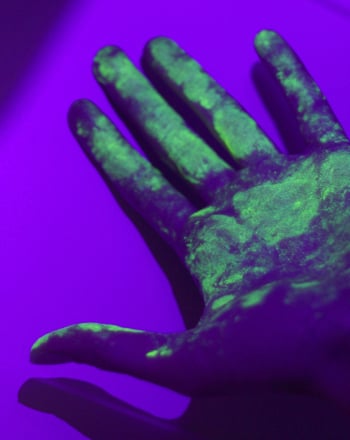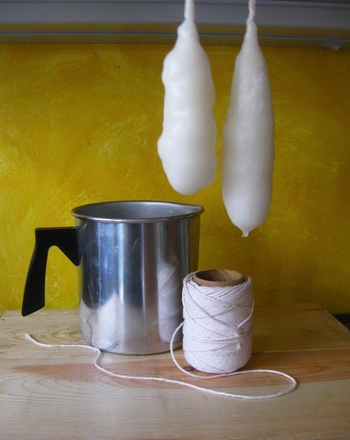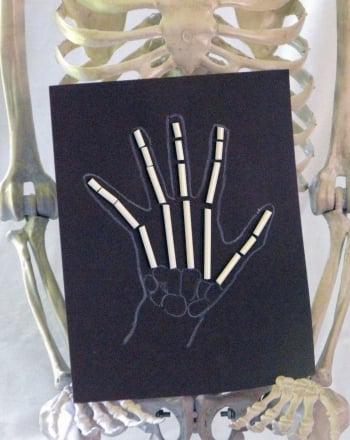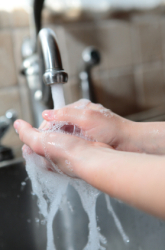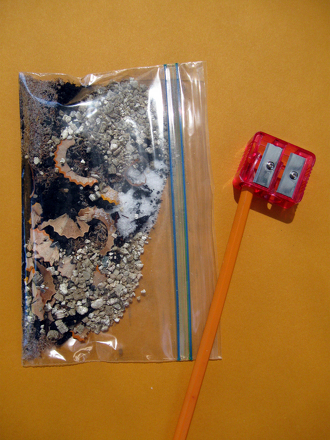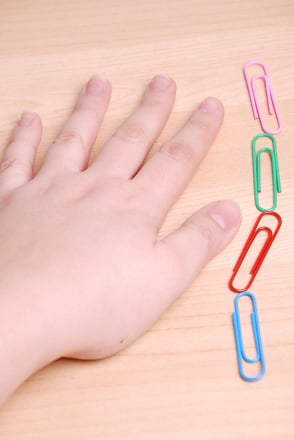Science project
Effective Hand Washing
Grade Level: 1st - 4th; Type: Life Science
Objective:
In this study we will determine which method of hand cleansing is the most effective. Three methods of cleansing will be tested: plain hand soap and water, anti-bacterial soap and water, anti-bacterial gel. Germs will be visualized using the Glo Germ Kit.
Research Questions:
Which method is the most effective in eliminating bacteria and germs?
Our skin is our first line of defense against germs. Skin is an organ that protects our body, acting as a barrier to prevent germs from entering our body. During the cold and flu season we are constantly reminded to "wash your hands". Our hands come into contact with a number of objects during the course of a day so that's why it is important to wash our hands on a regular basis to prevent the spread of germs. There are many anti-bacterial soaps and hand sanitizers on the market but how effective are they?
Materials:
- Glo Germ Kit - available online
- Hand Soap (non anti-bacterial)
- Anti-bacterial Hand Soap
- Anti-Bacterial Gel / Hand Sanitizers (waterless)
Experimental Procedure:
You can do this yourself or perform on a subject so you can record the data.
- Rub the Glo Germ Liquid onto the hands. View under the UV light.
- Wash hands with hand soap and water as usual.
- View hands under the UV light. Record observations or take a photo.
- Re apply the Glo Germ Liquid.
- Wash hands with anti-bacterial soap and water as usual.
- View hands under the UV light. Record observations or take a photo.
- Re apply the Glo Germ Liquid.
- Wash hands with anti-bacterial soap and water as usual.
- View hands under the UV light. Record observations or take a photo.
Terms/Concepts: What are the common bacteria found on the hands? Why are some bacteria strains considered good? E.g. Normal Flora; What are the differences between regular hand soap, anti-bacterial hand soap, and anti-bacterial gel or hand sanitizers? How do they clean?
References:
Education.com provides the Science Fair Project Ideas for informational purposes only. Education.com does not make any guarantee or representation regarding the Science Fair Project Ideas and is not responsible or liable for any loss or damage, directly or indirectly, caused by your use of such information. By accessing the Science Fair Project Ideas, you waive and renounce any claims against Education.com that arise thereof. In addition, your access to Education.com's website and Science Fair Project Ideas is covered by Education.com's Privacy Policy and site Terms of Use, which include limitations on Education.com's liability.
Warning is hereby given that not all Project Ideas are appropriate for all individuals or in all circumstances. Implementation of any Science Project Idea should be undertaken only in appropriate settings and with appropriate parental or other supervision. Reading and following the safety precautions of all materials used in a project is the sole responsibility of each individual. For further information, consult your state's handbook of Science Safety.

